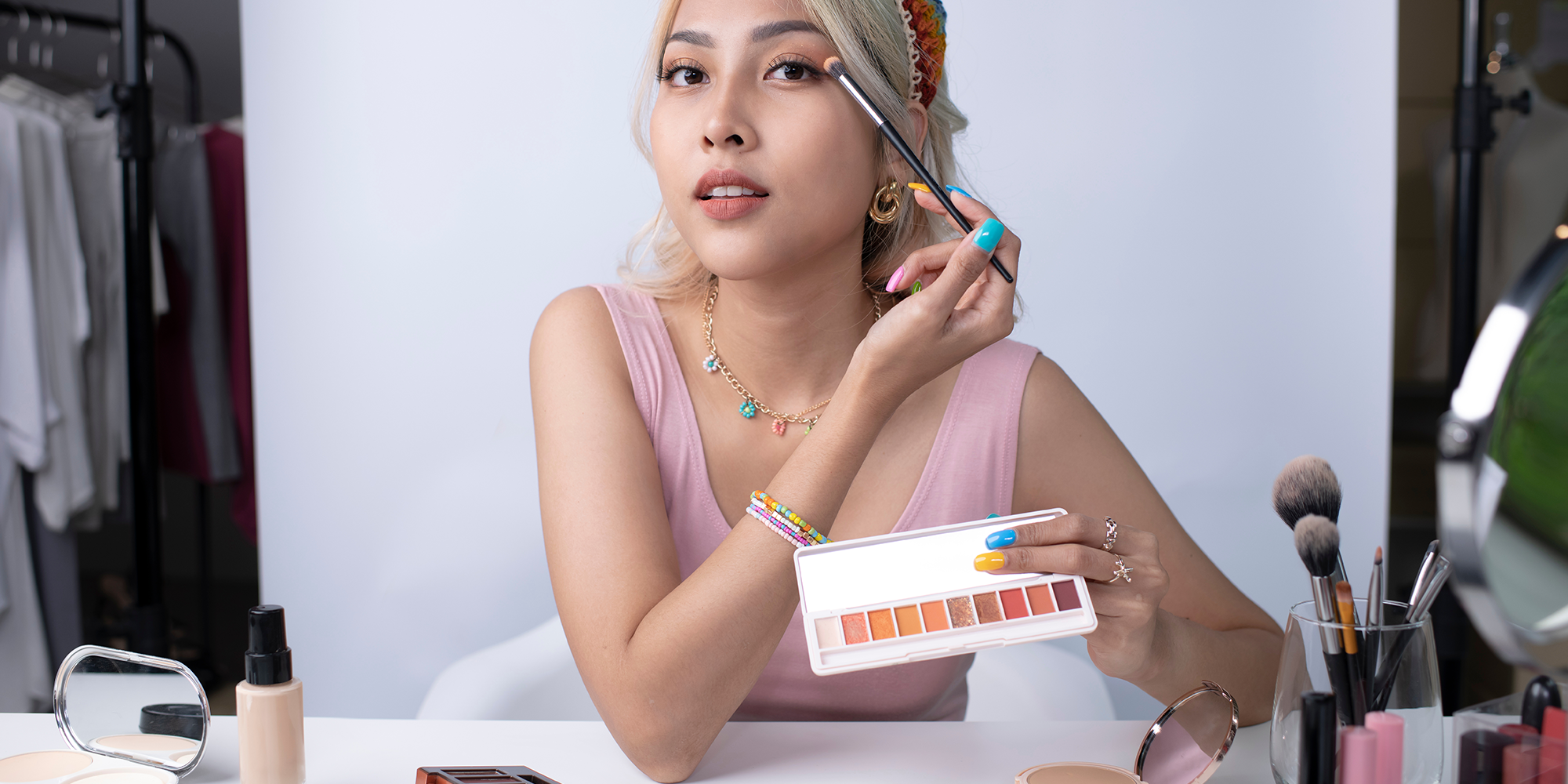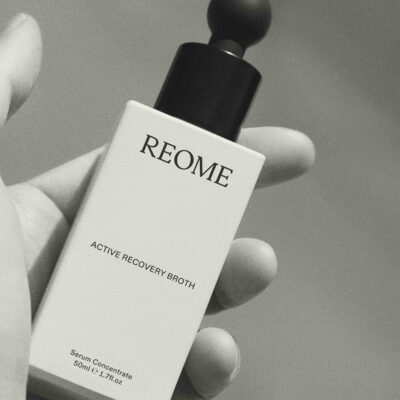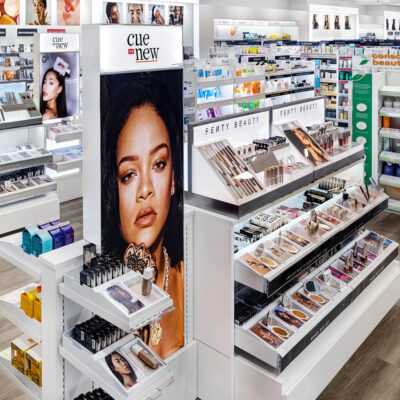
What’s The Lasting Legacy Of TikTok’s “Deinfluencing” Trend?
A few weeks ago, the biggest influencer trend on TikTok was “deinfluencing,” and videos were filled with bad reviews of viral beauty products that creators warned their followers against buying. Products that had been hyped on the platform like Charlotte Tilbury’s Beauty Light Wand, Laneige’s Lip Sleeping Mask and Olaplex’s No. 4 Bond Maintenance Shampoo were summarily bashed.
As they do with most things on TikTok, creators have largely moved on from deinfluencing, but we were curious if the trend will have deeper ramifications than most fleeting trends fueled by the platform. So, for the latest edition of our ongoing series, we asked 14 beauty, marketing, social media and public relations entrepreneurs, executives and experts the following questions: What are the lasting effects of deinfluencing? Is deinfluencing being deinfluenced? Does it mean that brands should prepare for more critical reviews on TikTok and elsewhere? How should brands respond?
- Shannon Keene Senior Partnerships Lead, Team Bespoke
I think that influencers are going to continue to keep the deinfluencing trend in mind when reviewing products and recommending products. However, I don't think that it's going to change the landscape forever.
Some of the brands that are being targeted on the deinfluencing trend are going to use some of their marketing budgets to try and "win back" influencers, and we'll see influencers that bashed products working for them for the right price.
At the core of influencing is being authentic and recommending products/brands that the influencer believes in. I think a lot of influencers have been doing deinfluencing for a long time, but now it has the label. Like all trends, we'll likely see this one evolve, but I'm not sure how it will evolve.
Brands should brace for impact for more critical reviews, and I think brands should participate in the conversation. I think that this new generation wants to see brands change, evolve and take in feedback.
Also, I think brands need to make fun of themselves a bit - I know that may have been seen as detrimental in the past, but this new generation craves corporate brands that don't take themselves too seriously. I think it's a great prompt for brands to provide education on products, too-- no better time than to directly engage and respond to criticism!
- Danielle Gronich CEO and Formulator, CLEARSTEM Skincare
Lasting effects of this trend is similar to misinformation trends, where people just don't know who to trust anymore. So, they will likely revert back to word of mouth/peer recommendations.
We think deinfluencing will be deinfluenced—or at least less tolerated when done poorly and without intelligent context.
We should all prepare for things like this because everyone wants to grow their audience and the easiest way to do that is using fear around trending products and topics. So, it's very likely that it's going to happen to every brand at some point as this tactic is the quickest and cheapest avenue for a content creator to get attention.
Brands should own their own narrative at all times with proactive articles/content around topics that are sensitive or need more clarification. We think they should evaluate any negative customer feedback and analyze what's going on. Once unpacked, there are going to be lots of opportunities to address concerned and fill gaps in instruction or product education.
- Osmaan Shah Founder and CEO, Formulate
On the positive side, deinfluencing will encourage more critical thinking and build trust through transparency between the influencer and their followers. Unfortunately, this trend will also create more confusion amongst consumers and foster skepticism towards all brands that may or may not be warranted.
The reality is that everyone is unique, and experiences vary tremendously from person to person. Give me any product on the market, and there will be someone that hates it and someone that loves it.
There will inevitably be people that provide negative reviews just for the attention. Fear and negativity drive more clicks than praise or positivity.
My guess is that the trend will balance out. Influencers that overuse negative or positive reviews will be called out on either extreme. The end result will hopefully be more balanced and honest content from influencers.
No brand on earth will be immune from negative reviews. It's worth reaching out to an influencer that leaves a negative review to see if you can make it right. If you can make them satisfied, that's great. If not, I don't think there is anything else to be done. Take it as a single piece of constructive feedback, use it to improve your product or business, and move forward.
For the most part, brands should just continue focusing on making their customers more and more satisfied over time.
- Heather Smith Founder, BareLuxe Skincare
Deinfluencing is another trend that will eventually be replaced by something else. During the time that it’s popular, it could do some good, but only if it truly inspires reduced consumerism.
From what I’ve seen so far, this is not going to be the case. Deinfluencing seems to be another method for influencers to draw attention to specific products that they’re endorsing (at the expense of a popular alternative) rather than helping consumers realize they don’t actually need a 14-step routine and can ditch entire categories of products without replacing them at all.
I don’t think this is a matter of brands needing to prepare themselves for more critical reviews per se. For sure there will be more critical reviews, but it’s the brands themselves who shape the narrative through sponsored relationships.
So, when we see an influx of, “Product A is awful, use product B instead,” I think it’s a safe bet to say there's usually a relationship between brand B and the deinfluencer.
- Anna Sullivan Founder, The Creative Exchange
As influencer marketing and consumers are becoming more educated and have the same opportunity to get their opinions out, deinfluencing has become a trend. It's encouraged to share your thoughts and opinions on TikTok specifically, and we will continue to see more of this unless brands either stop telling their influencers to exaggerate their reviews or brands start working with more influencers who come across as more genuine with their personality and presence.
At the end of the day, these influencer posts and the deinfluencing posts still help the brands if we believe in all press is good press. If this gets out of hand, then brands will look to more micro-influencers and creators to work with for a different approach to their content.
Potentially deinfluencing will be deinfluenced. It started as something genuine to share as feedback to influencer promotions. The fact of people pushing back against influencer product promotions and exaggerated claims won't go away, but people posting with the hashtag and creating content not prompted by an incident will fade.
Any campaign that a brand runs, there is room for consumer response. Otherwise, when it comes to places or products that are simply overhyped and not being paid for by the brand to promote, brands will need to respond to these reviews. If products or businesses cannot claim what they promote, they will need to help educate people through their own branded content on why their product is worth the hype.
- Sonia Elyss Founder and Digital Marketing Strategist, Sonia Elyss Consulting
Unfortunately, I think there will be very few lasting effects of this deinfluencing trend. The most prominent effects will be felt this year, but I doubt they will be lasting. Ideally, influencers adjust their approach to content long term and consumers are more mindful of who they follow and the content they consume before they purchase a recommended product. In my projections however, I don’t see these things happening and staying that way.
In the short term, we will definitely see more critical reviews on social media. I have seen select creators jump on the trend and use it to be extreme with what they are saying, really trashing a product for shock factor. I advise my brands to be prepared with responses that are honest and proactive, never defensive.
Perhaps they point out benefits, talk about all of the people who love the product or even just thank someone for trying the product. In reality, consumers and influencers will always have negative reactions towards products. Nothing is created that’s the right fit for everyone. It’s just a shame that the current trend is leaning towards the negative to try to gain trust and virality.
- Julianne Fraser President and CEO, Dialogue NYC
The oversaturation of consumerism on social media is where deinfluencing began, influencers sharing which products not to buy as a cry for more authenticity in the creator landscape.
Looking ahead, brands will need to be more thoughtful when crafting partnerships with influencers to counter this burnout. Gone are the days of #ad scripted campaigns, which never worked in the first place. Consumers want real and authentic testimonials about products influencers actually use.
The trend of deinfluencing is already losing steam, but the call for authenticity in influencer marketing is not. It's the responsibility of brands to be more thoughtful as well as the responsibility of creators to ensure they align with partners they truly believe in.
In reality, deinfluencing isn't new news. We've known from the beginning that inauthentic sponcon-type campaigns don't move the needle. Consumers see right through them, and it's a costly mistake many brands make.
If approached strategically, brands can expect continued success from influencer marketing and don't need to fear risk of criticism. It requires careful partner curation and thoughtful campaign messaging to break through the sea of social noise.
Don't look to influencer marketing as a quick fix. This is not a performance marketing tactic you can turn on and see results from instantly. Be patient, nurture creator relationships and be thoughtful in your campaigns. Brands that haven't taken this approach from the start should reset and those that have should stay the course.
- Braelinn Frank Founder, Rave Nailz
The lasting effects are more educated consumers, a more transparent conversation between business and consumer, better product development, and hopefully a lot of wallets saved from buying crappy products, too.
Deinfluencing won't be de-influenced. This has already been a long time coming (ever seen a crappy yelp review?).
Brands should have been doing preparing for critical reviews from the beginning. If you're not making a good product, at the end of the day, your business is not going to last. The internet is only becoming more "real." Brands should use it as an opportunity to connect deeper with their audience rather than seeing it as a negative.
Brands should also reply to the negative feedback. Often it can be used as an education opportunity for customers. I loved Bobbi Brown's viral response to an influencer complaining about her WTF Foundation, which I use and love. And if it's genuinely a product flaw, then you now have very good feedback to create a better product. Either way, treat these as a conversation with the public.
- Amber Olson Rourke Co-Founder and Chief Sales and Marketing Officer, Neora
Only time can tell on this, but I do believe a bad review can be more harmful depending on the reach of the deinfluencer. We need listen to deinfluencers seriously, and if they have a dislike of the product, they are telling us something valuable. We need to engage and help them with any concerns, miscommunication or whatever the situation.
Feedback—good or bad—only helps us do our jobs better. Ignoring deinfluencers does not make those existing concerns go away, and we’ve totally missed an opportunity to listen and improve.
I don’t believe deinfluencing will be deinfluenced. I think deinfluencers will continue to grow, and we as consumers will lean more into them to find products that we want to try because we trust their honesty and candidness.
Stand behind your product, but be prepared that not everyone will like it, and that's OK. If you’re not prepared to stand behind your product, you’re in for a shock when you get a negative review.
Brands should be authentic in their response. That is what your audience is looking for. They don’t want a canned reply that multiple people get. They want an individual response, and true authenticity and thoughtfulness in the reply.
- Tiffany Buzzatto Founder and CEO, DEW Mighty
It depends on if we are talking about the trend of deinfluencing versus the concept of deinfluencing. There is a critical difference because, at its core, deinfluencing is just meant to look critically at our own consumption behaviors and the production and consumption models pushed by fast fashion, fast beauty and fast retailers.
As someone who has been following the sustainable community for nearly a decade, this idea of conscious consumerism and buying based on quality but fewer as well as core company values is the true way to support the concept of deinfluencing.
The current trend hurts many brands who uphold a "make, sell, toss, more" culture, and the irony is they will be targeted for deinfluencing by the very people they have paid to promote their products. (Hi there creators with fashion and beauty hauls, I’m talking about you!). That means there is no great way for brands to prepare for critical reviews as many are very aware at how little they offer unique product solutions to customers.
Building businesses on throwaway culture or inherently bad business practices that harm people and the environment around us should be deinfluenced. I don’t feel there will be a best way brands can respond, as it would be similar to cigarette companies spreading their propaganda in the hopes to save themselves from another version of cancel culture.
- Sydney Dake Founder, Gntl
The lasting effects of deinfluencing will be a continuation of trends we've seen for the past five to 10 years. Customers are becoming savvier with higher product expectations and more access to alternatives than ever. Even if a customer has a good experience with a product, they're always on the hunt for something better.
This means brands can no longer rely on cool factor or catchy marketing alone. Brands must invest more in product development and quality than ever before.
I think the deinfluencing trend has been around for longer than we may realize in the form of "anti-hauls," "hit or miss" and "what I'd repurchase" content. People are always on the hunt for the next best thing, so deinfluencing, in one form or another, is here to stay.
Brands should be prepared to hear more critical customer feedback. Shoppers today have much higher expectations, which will continue to rise as online communities grow and choices broaden. It's a good reminder to invest in product development and product testing before launch and to involve brand advocates in the development process. Critical feedback means there's room for improvement, and if we're in the business of making stellar, holy grail products, all feedback is good feedback.
Consider your innovation pipeline. Rather than pulsing a bunch of newness and seeing what sticks, focus your efforts behind fewer A-tier launches, and support those products with better content that communicates your points of differentiation. Experiment and play with content marketing rather than product development.
- Ann Somma Chief Brand Officer and Founder, Tru Fragrance and Undone Beauty
Ultimately the deinfluencing trend is about slowing down our desire for newness and appreciating what we have. This has been a long time coming with minimalism bubbling up over the last few years, and may ultimately change the punishing “fast fashion” launch cycle that beauty has had to keep up with in favor of more meaningful innovation.
The catchphrase may fade, but ultimately I think most people find less breathless, “gotta have it” type of selling refreshing—and even a relief.
Those of us in product innovation are always prepared for tough, honest reviews. What’s likely to change is influencers’ excitement about unboxing every new thing that lands on their doorstep as the demand for constant new content about the latest "must-have" cools down.
It’s a great time to look in the mirror at your product assortment and understand what is standing the test of time. At Undone, we’ve been working to reinforce the innovation we’re known for rather than only pointing consumers to the latest thing. It’s a really exciting reminder that great, meaningful product creation takes time, and if you need another six months to make something that the market is going to see real value in, that may be better in the long run than just throwing trendy newness into the cycle.
- Rebecca Anne Hunter Marketing Director, ManukaRX
With content creators providing authentic and honest product reviews online, brands that have prioritized authenticity as a core value will continue to thrive.
While it may be premature to make a definitive prediction, I am cautiously optimistic that the trend of definfluncing will be here to stay. The need to hold inauthentic brands accountable has never been greater, and today's consumers have the power to shape the world they inhabit by supporting brands that genuinely reflect their values. The growing trend of deinfluencing represents a compelling opportunity for brands with significant marketing budgets but mediocre products to redirect their focus towards product quality and environmental impact.
By eschewing the use of disingenuous influencers and instead prioritizing authenticity and transparency, brands can earn the trust and loyalty of consumers while driving positive social and environmental change.
As deinfluencing as a trend continues to rise in popularity, brands must be proactive in preparing for more critical reviews on platforms such as TikTok. Forward-thinking brands recognize that such reviews should not be viewed as negative, but instead as an opportunity to gather honest and valuable feedback from content creators.By leveraging this feedback, brands can identify areas of improvement and innovation to implement in new product development and enhancement plans. The ability to use constructive feedback from TikTok and other social media channels allows brands to optimize their products and services, stay ahead of the competition, and deliver exceptional customer experiences.
In the current landscape of definfluencing, it is essential for brands to hero authenticity as a core brand value. By demonstrating transparency in their values, practices and operations, and actively engaging with customers to provide feedback on their products and services, brands can unlock powerful growth benefits.
With consumers increasingly prioritizing ethical and sustainable practices, authentic brands that genuinely align with their customers' values have a unique opportunity to build brand equity, drive loyalty, and gain a competitive advantage. In this context, it is imperative that brands adopt a proactive and strategic approach to authenticity, elevating it as a core component of their marketing and branding efforts.
- Ann Ragan Kearns Founder, Odyssey Public Relations
Hopefully, we will start seeing more indie beauty brands with amazing products and brand stories in the spotlight more on social. Consumers, especially gen Z purchasers, are now more than ever buying from brands that are showing up authentically on social, through press, etc.
Because of this, I can see less brand loyalists sticking to a brand just because of the brand name, and more consumers purchasing based on their own decision/research on the brand and not from an influencer script found in sponsored videos. Hopefully, this will let smaller, indie beauty brands continue to rise.
Deinfluencing has always been around, but not as loud as it is today with the deinfluencing trend taking over TikTok. You can argue that dupe content was the opening gate to deinfluencing, as the heart of the content urges consumers to spend less money on a name brand for virtually the same product from a lesser known, or indie beauty brand.
Creators are showing up more and more authentically with their followers, so I think deinfluencing will continue to be around on social and in the media as long as the "non-gatekeeping" trend remains as well.
Brand should definitely prepare for more critical reviews on TikTok, especially those brands who come with a hefty price tag. In the beauty industry, consumers are more savvy than ever and looking to purchase products because they genuinely work, not necessarily the name brand.
The deinfluencing trend lifts the curtain on brands that are solely relying on packaging and social/marketing and not product development. Deinfluencing is allowing an even playing field for indie beauty brands to compete with those brands with larger budgets because social media is shifting to be a place of authenticity now and not just a highlight reel.
Brands should be prepared for not only influencer deinfluencing reviews to go viral, but non-influencer content to go viral as well. Brands should use this trend as a way to continue to focus on creating the best product possible and not relying on marketing dollars to sell a product out.
If you have a question you’d like Beauty Independent to ask beauty and marketing entrepreneurs, executives and experts, please send it to editor@beautyindependent.com.






Leave a Reply
You must be logged in to post a comment.